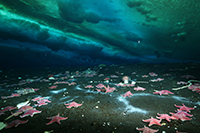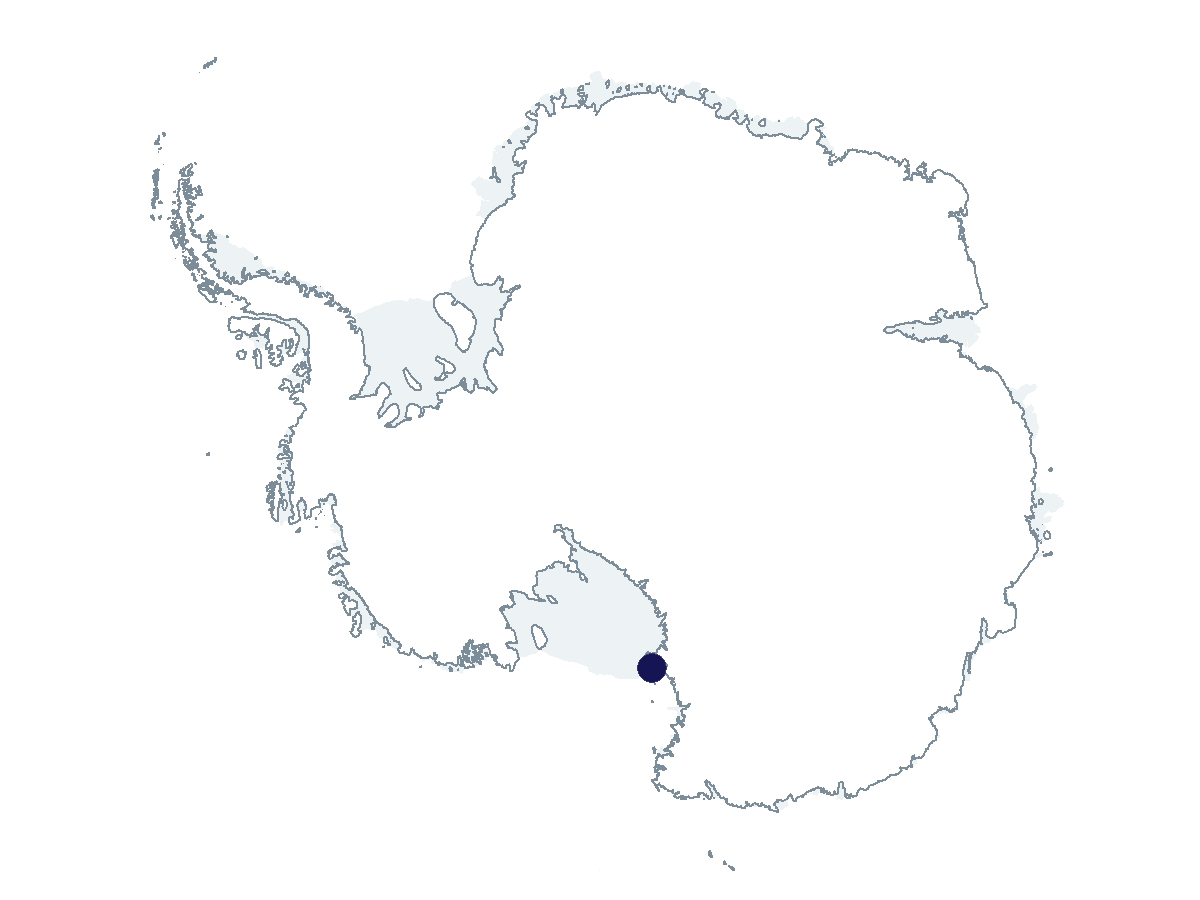2022-2023 USAP Field Season
Project Detail Project TitleCAREER: Ecosystem impacts of microbial succession and production at Antarctic methane seeps Summary
Event Number:
Program Director:
ASC POC/Implementer: Principal Investigator(s)
Dr. Andrew Thurber
Location
Supporting Stations: McMurdo Station DescriptionThis project involves genomic and transcriptomic study of microbial communities developed and still developing after seepage of methane through the seafloor into the ocean, the cold seeps. The first methane seepage in the high Antarctic was discovered in the McMurdo Sound in 2012, and five years later still had an underdeveloped microbial community that was consuming methane. This project will elucidate the microbial community composition in relation to the presence of methane and their function in oxidizing methane in Antarctic coastal waters. The Principal Investigator proposes to answer three scientific questions on microbes associated with methane seeps, in relation to species present and their evolution over time, the metabolic processes they support, and the role they play in providing food for benthic food webs. The sampling needs to occur in the late winter/early spring before high light levels support growth of diatom mats over the benthos. Field Season OverviewFour participants will deploy to study benthic chemosynthetic microbial communities in McMurdo Sound. The PI will sample, with divers, to characterize the community in sediment cores and will collect other animals to assess the carbon flow through the food web supported by methane. Geochemical analysis of methane released in the sediment will be measured on samples collected in situ and analyzed on an instrument provided by the PI. Additional experiments will be run in the aquarium. The Thurber team will focus on diving sites at Cinder Cones, Turtle Rock, the McMurdo Jetty, Cape Armitage/Dayton's Wall, and New Harbor. They will require holes drilled and fish huts placed at the McMurdo Sound sites, or will share huts already established at those locations. Field work will involve collecting sediment cores and filter samples, repeatedly deploying flux chambers on the seafloor for retrieval within 24 hours, and some collection of invertebrates. The team will include one filmographer/science diver for outreach and documentary purposes. Deploying Team Members
|
2022-2023 Science Planning Summary



For USAP Participants |
For The Public |
For Researchers and EducatorsContact UsU.S. National Science FoundationOffice of Polar Programs Geosciences Directorate 2415 Eisenhower Avenue, Suite W7100 Alexandria, VA 22314 Sign up for the NSF Office of Polar Programs newsletter and events. Feedback Form |



